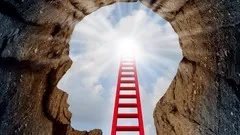
How childhood and family history affect our happiness 
Childhood and family history can have a profound impact on our overall happiness. Research has shown that our past experiences can shape our present outlook, making it important to consider how our history may be influencing our current emotions. ▼
ADVERTISEMENT
Course Feature
![]() Cost:
Cost:
Free
![]() Provider:
Provider:
Udemy
![]() Certificate:
Certificate:
Paid Certification
![]() Language:
Language:
English
![]() Start Date:
Start Date:
On-Demand
Course Overview
❗The content presented here is sourced directly from Udemy platform. For comprehensive course details, including enrollment information, simply click on the 'Go to class' link on our website.
Updated in [February 21st, 2023]
This course, How Childhood and Family History Affect Our Happiness, will provide an overview of the facts of the past that may influence our present wellbeing. Participants will learn about the influence of the roots of their parents and ancestors, the influence of war and the suffering of past generations, the influence of guilt and shame in the family history, the influence of early death in a family, and the influence of an early separation from the mother. Through this course, participants will gain insight into their emotions and triggers, and will learn how to increase their quality of life in their relationships and career. Participants will also gain an understanding of the power and importance of family constellations and how they can be used for healing.
[Applications]
After taking this course, participants will have a better understanding of how childhood and family history can affect their happiness. They will be able to identify the influence of the roots of their parents and ancestors, the influence of war and the suffering of past generations, the influence of guilt and shame in the family history, the influence of early death in a family, and the influence of an early separation from the mother. Participants will also be able to use the insights from the family constellation method to make sense out of their emotions and increase their quality of life.
[Career Paths]
Recommended Career Paths:
1. Family Therapist: Family therapists help individuals and families work through difficult issues and improve their relationships. They use a variety of techniques, such as cognitive-behavioral therapy, to help clients understand and resolve their issues. This field is growing rapidly, as more people are seeking help for their mental health issues.
2. Social Worker: Social workers help individuals and families in need of assistance. They provide counseling, support, and resources to those in need. They also work with government agencies to ensure that individuals and families receive the help they need. This field is growing rapidly, as more people are seeking help for their social and emotional needs.
3. Mental Health Counselor: Mental health counselors provide counseling and support to individuals and families dealing with mental health issues. They use a variety of techniques, such as cognitive-behavioral therapy, to help clients understand and resolve their issues. This field is growing rapidly, as more people are seeking help for their mental health issues.
4. Psychologist: Psychologists study the behavior and mental processes of individuals and groups. They use a variety of techniques, such as psychotherapy, to help clients understand and resolve their issues. This field is growing rapidly, as more people are seeking help for their mental health issues.
[Education Paths]
Recommended Degree Paths:
1. Psychology: Psychology is a field of study that focuses on the behavior and mental processes of individuals. It is a great degree path for those interested in understanding how childhood and family history affect our happiness. With a degree in psychology, you can gain a better understanding of the psychological and emotional effects of family history, as well as the impact of trauma and other life events. Additionally, you can learn about the latest research and theories in the field, and develop the skills to help people cope with the effects of their family history.
2. Social Work: Social work is a field of study that focuses on helping individuals, families, and communities to improve their lives. It is a great degree path for those interested in understanding how childhood and family history affect our happiness. With a degree in social work, you can gain a better understanding of the social and emotional effects of family history, as well as the impact of trauma and other life events. Additionally, you can learn about the latest research and theories in the field, and develop the skills to help people cope with the effects of their family history.
3. Counseling: Counseling is a field of study that focuses on helping individuals, couples, and families to improve their lives. It is a great degree path for those interested in understanding how childhood and family history affect our happiness. With a degree in counseling, you can gain a better understanding of the psychological and emotional effects of family history, as well as the impact of trauma and other life events. Additionally, you can learn about the latest research and theories in the field, and develop the skills to help people cope with the effects of their family history.
4. Education: Education is a field of study that focuses on helping individuals, families, and communities to improve their lives. It is a great degree path for those interested in understanding how childhood and family history affect our happiness. With a degree in education, you can gain a better understanding of the educational and social effects of family history, as well as the impact of trauma and other life events. Additionally, you can learn about the latest research and theories in the field, and develop the skills to help people cope with the effects of their family history.
Developing Trends:
1. Psychology: The field of psychology is constantly evolving, with new research and theories being developed all the time. As such, there is a growing emphasis on understanding the psychological and emotional effects of family history, as well as the impact of trauma and other life events. Additionally, there is an increasing focus on developing new therapeutic techniques and interventions to help people cope with the effects of their family history.
2. Social Work: The field of social work is constantly evolving, with new research and theories being developed all the time. As such, there is a growing emphasis on understanding the social and emotional effects of family history, as well as the impact of trauma and other life events. Additionally, there is an increasing focus on developing new interventions and strategies to help people cope with the effects of their family history.
3. Counseling: The field of counseling is constantly evolving, with new research and theories being developed all the time. As such, there is a growing emphasis on understanding the psychological and emotional effects of family history, as well as the impact of trauma and other life events. Additionally, there is an increasing focus on developing new therapeutic techniques and interventions to help people cope with the effects of their family history.
4. Education: The field of education is constantly evolving, with new research and theories being developed all the time. As such, there is a growing emphasis on understanding the educational and social effects of family history, as well as the impact of trauma and other life events. Additionally, there is an increasing focus on developing new strategies and interventions to help people cope with the effects of their family history.
Pros & Cons

Authentic communication

Interesting information

Connections to family history

Pandora box of wisdom

Well put together

Informative

Insightful

Deep knowledge.

None
Course Provider

Provider Udemy's Stats at AZClass
Discussion and Reviews
0.0 (Based on 0 reviews)
Explore Similar Online Courses

User Experience (UX) Strategy Fundamentals

The Complete Real Estate Syndication + Crowdfunding Course

Python for Informatics: Exploring Information

Social Network Analysis

Introduction to Systematic Review and Meta-Analysis

The Analytics Edge

DCO042 - Python For Informatics

Causal Diagrams: Draw Your Assumptions Before Your Conclusions

Whole genome sequencing of bacterial genomes - tools and applications

Meditation

Mental Health First Aid Skills -


Start your review of How childhood and family history affect our happiness